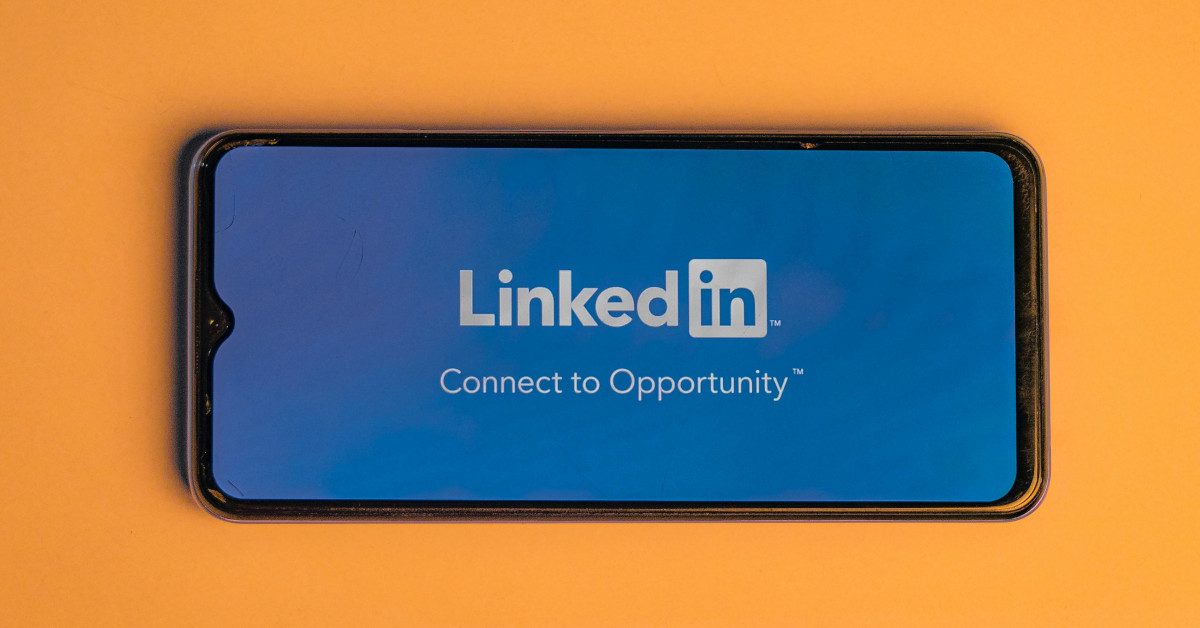O que é Marketing Sob Medida? Uma Jornada pelo Marketing Personalizado
À medida que as empresas se esforçam para se destacar em um mercado saturado e criar conexões significativas com seus clientes, elas estão cada vez mais recorrendo a estratégias mais personalizadas e direcionadas.
E, com a crescente competição entre empresas, simplesmente fazer publicidade já não é suficiente para se destacar. O sucesso vem da construção de relacionamentos genuínos com os consumidores. É aí que o marketing sob medida faz a diferença.

O marketing sob medida é uma abordagem altamente personalizada e individualizada, onde estratégias e campanhas são especificamente projetadas para atender às necessidades e preferências exclusivas de cada cliente.
Essa abordagem contrasta fortemente com o marketing tradicional, que frequentemente utiliza táticas amplas e genéricas. Em vez disso, o marketing sob medida enfatiza uma personalização profunda, criando mensagens e experiências que ressoam de forma mais pessoal e individual com o público-alvo.
Neste artigo, exploraremos sistematicamente o marketing sob medida, analisando seus componentes, benefícios, desafios e as tendências futuras que o moldam.
O objetivo é fornecer uma compreensão abrangente de por que o marketing sob medida não é apenas um termo da moda, mas uma estratégia essencial no cenário competitivo dos negócios modernos.
Por que Marketing sob medida é um Diferencial?
O marketing sob medida é centrado em personalização e conexão genuína, diferenciando-se dos métodos tradicionais de marketing. Em vez de lançar uma rede ampla na esperança de atrair um público diversificado, o foco está na criação de campanhas altamente personalizadas que falam diretamente com cada cliente.
Aqui está o porquê dessa estratégia se destacar:
- Vai Além do "Tamanho Único para Todos"
- O marketing tradicional utiliza mensagens padronizadas para grandes audiências, enquanto o marketing sob medida adapta o conteúdo às necessidades, preferências e desejos individuais.
- Cria Conexões Significativas com os Clientes
- A personalização faz com que os clientes se sintam vistos, compreendidos e valorizados. As marcas constroem relacionamentos mais fortes ao se conectarem em um nível mais profundo.
- Prioriza a Relevância Pessoal
- Os consumidores querem mensagens que se alinhem aos seus interesses e comportamentos. O marketing sob medida garante que cada interação se sinta como uma conversa pessoal.
- Corta o Ruído Digital
- No mundo atual, os clientes são bombardeados diariamente com novos conteúdos. Ao personalizar suas experiências, você captura sua atenção e os mantém engajados.
- Aumenta a Lealdade e Retenção da Marca
- Quando as marcas compreendem verdadeiramente seus clientes, elas constroem relacionamentos duradouros, promovem a confiança e aumentam a probabilidade de novos negócios.
O marketing sob medida é mais do que uma estratégia — é um compromisso em compreender o consumidor moderno e oferecer experiências que vão além dos limites do marketing tradicional.
Componentes-Chave do Marketing Sob Medida
A essência do marketing sob medida está na capacidade de compreender profundamente e responder às necessidades únicas de cada cliente. Isso é alcançado através de diversos componentes fundamentais:
- Análise Cuidadosa de Dados
- Coletar e interpretar dados de clientes, desde hábitos de compra até interações nas mídia social .
- Obter insights valiosos sobre preferências e comportamentos individuais.
- Utilizar essas informações como base para criar estratégias de marketing sob medida.
- Conteúdo e Mensagens Personalizadas
- Criar comunicações que falem diretamente aos interesses, necessidades e experiências de vida do cliente.
- Ir além de mensagens genéricas para criar conteúdos que se sintam como conversas individuais.
- Garantir que cada cliente se sinta único e compreendido.
- Seleção dos Canais e Plataformas Certos
- Não basta estar presente em vários canais; é essencial saber onde seus clientes estão mais ativos e engajados.
- Seja em redes sociais, e-mail ou experiências em aplicativos personalizados, escolher o meio certo é crucial para uma entrega eficaz.
- Engajamento e Interação Personalizada com o Cliente
- Ir além de falar com o cliente: engajá-lo ativamente.
- Utilizar ofertas personalizadas, conteúdo interativo e um atendimento ao cliente ágil e responsivo.
- Criar um diálogo contínuo que nutra um relacionamento forte e duradouro com cada cliente.
Benefícios da Implementação do Marketing Sob Medida
Implementar o marketing sob medida proporciona uma série de benefícios, com destaque para a melhoria da experiência e satisfação do cliente.
Os principais benefícios da implementação do marketing sob medida incluem:
- Maior Lealdade à Marca e Retenção de Clientes: A atenção personalizada fortalece o vínculo entre a marca e o cliente, promovendo a lealdade e incentivando negócios recorrentes e recomendações.
- Aumento nas Taxas de Conversão e Retorno sobre o Investimento (ROI): Estratégias personalizadas são mais eficazes na captação de clientes potenciais, resultando em maiores taxas de conversão e melhor ROI em comparação com campanhas genéricas.
- Melhoria na Experiência e Satisfação do Cliente: Ao adaptar os esforços às preferências individuais, os clientes se sentem mais valorizados e compreendidos, melhorando sua experiência geral.
Tendências Futuras e Previsões no Marketing Sob Medida
O futuro do marketing sob medida está intrinsecamente ligado ao avanço das tecnologias emergentes, como a Inteligência Artificial (IA) e o aprendizado de máquina.
Os algoritmos de IA podem analisar vastas quantidades de dados para prever o comportamento dos clientes, personalizar conteúdos e até mesmo antecipar necessidades antes que o cliente as expresse. Já o aprendizado de máquina melhora continuamente essas previsões e personalizações, tornando os esforços de marketing cada vez mais eficazes.
À medida que essas tecnologias se tornam mais sofisticadas, espera-se que o cenário do marketing sob medida evolua significativamente. Veremos uma mudança para estratégias ainda mais personalizadas e antecipatórias, onde as experiências dos clientes não serão apenas adaptadas às preferências atuais, mas também se ajustarão às necessidades futuras e mudanças comportamentais.
Para se preparar para essas mudanças futuras, os profissionais de marketing e as empresas devem investir nas tecnologias e habilidades certas. Compreender e aproveitar a IA e o aprendizado de máquina se tornará essencial. Além disso, manter-se ágil e adaptável a novas tendências e tecnologias será crucial para que as empresas permaneçam competitivas em um ambiente de marketing digital em rápida evolução.
O futuro do marketing sob medida promete uma relação mais intuitiva e responsiva entre marcas e clientes, tornando este um momento empolgante tanto para profissionais de marketing quanto para consumidores.
Superando os Desafios do Marketing Sob Medida
O marketing sob medida, embora altamente eficaz, apresenta seus próprios desafios e considerações.
- Equilíbrio entre Personalização e Privacidade
- Em uma era em que os dados são fundamentais para a personalização, respeitar a privacidade do cliente torna-se primordial. Os clientes estão cada vez mais conscientes de sua presença digital e preocupados com a forma como suas informações são utilizadas.
- Os profissionais de marketing precisam navegar nesse cenário com cuidado, garantindo que os esforços de personalização não ultrapassem os limites da privacidade, o que pode levar à perda de confiança.
- Implementação de Estratégias Sob Medida
- Adaptar experiências às preferências individuais requer um profundo entendimento do comportamento do cliente, análise de dados sofisticada e a criação de campanhas de marketing multifacetadas.
- O nível de complexidade pode ser desafiador, especialmente para empresas sem a infraestrutura ou o conhecimento necessários.
- Recursos
- É necessário investir em tecnologia avançada para a coleta e análise de dados, ferramentas para criação de conteúdo personalizado e plataformas para entrega dessas experiências.
- Pessoal Especializado
- Profissionais que saibam interpretar dados, entender tendências de mercado e traduzir insights em ações de marketing eficazes são cruciais.
- A necessidade de treinamento e desenvolvimento contínuo nessas áreas é essencial para se manter competitivo no campo dinâmico do marketing sob medida.
Considerações Finais
Ao respondermos à pergunta "o que é marketing sob medida?", descobrimos que não se trata apenas de uma estratégia de marketing, mas de uma abordagem crítica para empresas que buscam se destacar no mercado competitivo de hoje.
O marketing sob medida, com seu foco em personalização profunda e experiências individualizadas para o cliente, oferece uma alternativa robusta aos métodos tradicionais de marketing. Ele reconhece a singularidade de cada cliente, promovendo conexões mais fortes e lealdade à marca.
Entretanto, a jornada do marketing sob medida envolve enfrentar desafios como equilibrar personalização e privacidade, implementar estratégias complexas e investir nos recursos e competências adequados. Com o avanço da IA e do aprendizado de máquina, o marketing sob medida se tornará ainda mais intuitivo e responsivo.
Você está disposto a dar uma chance ao marketing sob medida? Se sim, permita que nossa equipe o ajude a criar campanhas altamente personalizadas que realmente ressoem com o seu público. Entre em contato conosco hoje mesmo e descubra como o marketing sob medida pode transformar o seu negócio!










